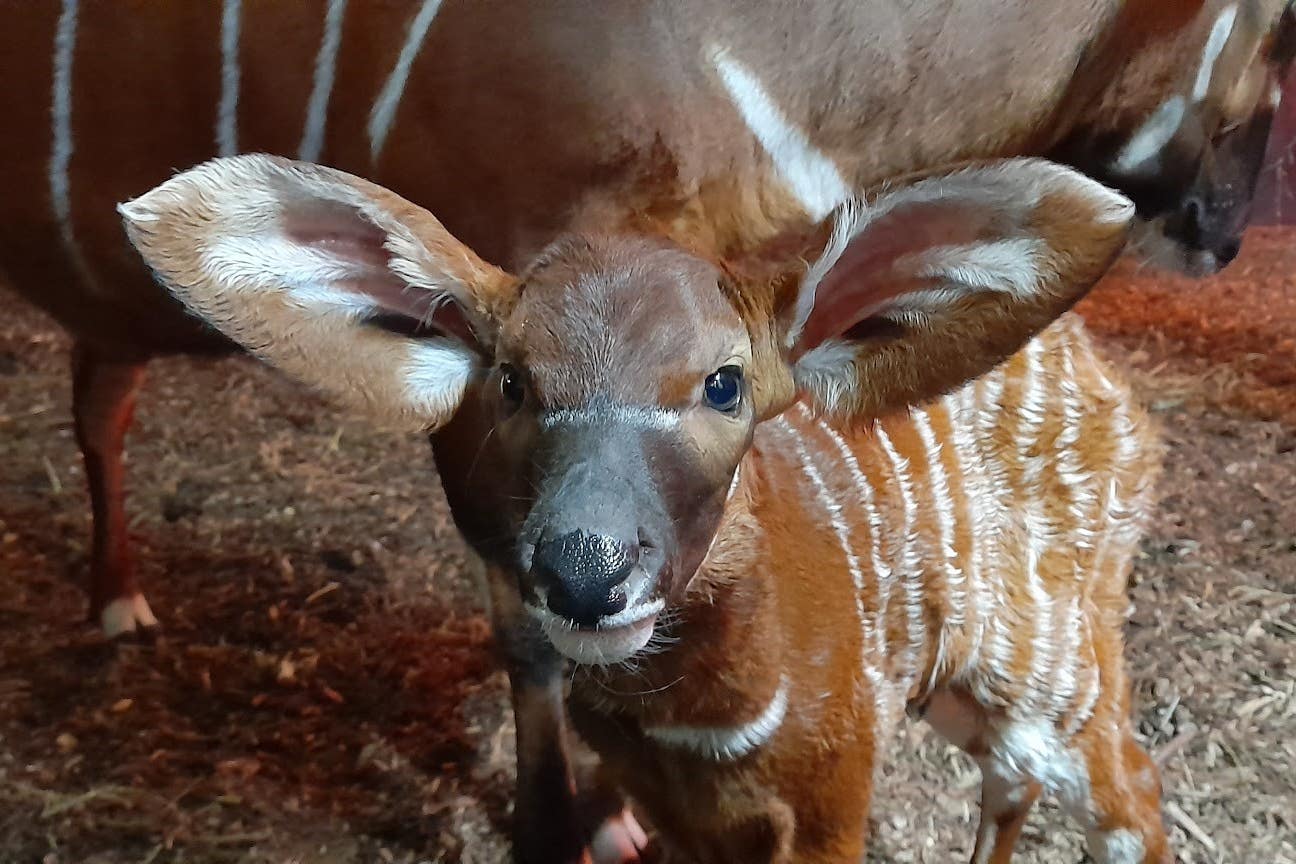Critically endangered mountain bongo birth delights zookeepers
It is thought that fewer than 100 of the animals remain in the wild.

Zookeepers are celebrating the birth of a floppy-eared, critically endangered mountain bongo.
Staff at Marwell Zoo, Hampshire, said the bongo calf is “doing really well” after being born to mother Canela and father Ituri on Monday.
The animals are a subspecies of the bongo, one of the largest forest antelopes, and it is thought that fewer than 100 of them remain in the wild.
Animal keeper Rhianna Worsell said: “Both mum, Canela, and her calf are doing really well.
“The calf has been seen up and about exploring its enclosure with Canela following close behind.
“Canela has been very attentive towards (it).
“We will leave them together to bond without any disturbance from us.”
The sex of the calf currently remains unknown.
Mountain bongos prefer areas with tall shrubs such as forest edges and areas where the forest has been disturbed, causing new growth.
They face a number of threats, including hunting with dogs and loss of habitat.
The species is found in four distinct areas of Kenya where they live in forests and highlands.
Bookmark popover
Removed from bookmarks